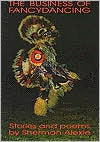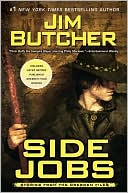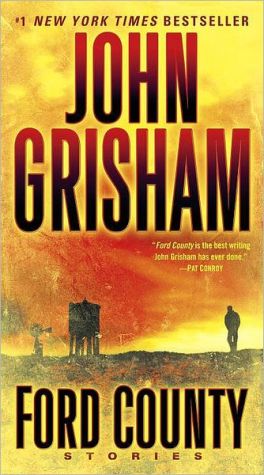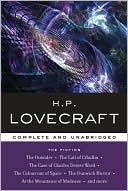The Business of Fancydancing
Poetry. Fiction. Published in 1992, well before Sherman Alexie became well-known as the screenwriter for the film SMOKE SIGNALS, THE BUSINESS OF FANCYDANCING has now been turned into a film with none other than Alexie himself in his directorial debut. The screenplay for the movie, which recently won the Audience Award at the San Francisco Film Festival, is loosly adapted from this book. Many film-goers will want to visit or revisit the elegaic poems and stories that set the tone for the film...
Search in google:
IDistancesTraveling1313/1616Distances18Translated from the American20Morphine and Codeine22Grandmother23The Fausto Poems24Sudden Death27Penance28House Fires29November 22, 198330Love Hard31Transient32When I Die34Futures35Dead Letter Office36IIEvolutionSpecial Delivery39Evolution48At Navajo Monument Valley Tribal School49Artificial Respiration50Powwow51Independence Day53Indian Boy Love Songs54Reservation Love Song58Some Assembly Required59Lottery60IIICrazy Horse DreamsFather Coming Home63War All the Time65Misdemeanors66No Drugs or Alcohol Allowed67The Business of Fancydancing69Heroes70Missing71Ceremonies72Native Hero73Spokane Tribal Celebration, September 198774Eugene Boyd Don't Drink Here Anymore75The Reservation Cab Driver76Basketball77Giving Blood78Pawn Shop79Gravity80
\ Publishers Weekly - Publisher's Weekly\ Alexie ( The Business of Fancydancing ) here emerges as a Native poet of the first order. He captures the full range of modern Native experience, writing both with anger and with great affection and humor. Detailing the continuing deprivation and colonialism, the poet pointedly asks, ``Am I the garbageman of your dreams?'' and defines Native ``economics'': ``risk'' is playing poker with cash and then passing out at powwow. Focusing on the Leonard Peltier case, Alexie exposes the ineffectualness of both white Indian-lovers and some Native leaders in ``The Marlon Brando Memorial Swimming Pool'': ``Peltier goes blind in Leavenworth . . . / and Brando sits, fat and naked, by the Pacific ocean. There was never / any water in the damn thing. '' General Custer is allowed to give an accounting of himself, as Alexie links genocide of America's indigenous peoples with Vietnam, the Triangle Shirtwaist Factory fire and other acts of warfare and destruction. Alexie writes comfortably in a variety of styles. Many of the poems turn on grim irony, putting the author himself in the traditional role of the trickster. Adrian Louis provides a powerful foreword, and Elizabeth Woody's moody illustrations add to the volume's impact. (Mar.)\ \ \ \ \ Library JournalWhen most Americans say, ``Hi, how ya doin'?'' they don't expect an answer, much less the truth. But when Alexie responds, he does so faithfully and with full eye contact whether you want it or not. A veteran of several literary publications, he has now published his first book of poetry. He is young, talented, and happens to be Native American, and his art is not aimed at the tourist. Instead, Alexie writes affectingly about life on a reservation in eastern Washington state. His work displays tremendous pain and anger, but there is also love, humor, and plenty of irony. Real-live late 20th-century human beings flesh out his poems and short prose. Not to be relegated to the New Age section, this work is recommended for literature collections in all types of libraries.-- Susan M. Olcott, Columbus Metropolitan Lib., Ohio\ \ \ School Library JournalYA-- This collection of poetry and sketches is the ninth in a series published ``for the purpose of encouraging American Indian authorship in expressive literature.'' In a style reminiscent of John Dos Passos and e. e. Cummings, Alexie opens a window into the hearts and minds of contemporary Indians who, for the most part, find their existence painful and disconnected from their heritage. YAs interested in broadening their cultural sensitivity will be profoundly affected by the strong images and harsh realities that arise from the wide range of everyday experiences and scenes covered here. The complex use of language and metaphor also provides layers of understanding that would make these selections wonderful discussion pieces. Every high school library will want this addition to multicultural collections. Encourage classroom teachers to peruse these writings as soon as the book arrives.-- Jessica Lahr, Edison High School, Fairfax County, VA\ \ \ \ \ Kirkus ReviewsA terrific second novel by the talented young Native American author whose highly praised fiction (The Lone Ranger and Tonto Fistfight in Heaven, 1993; Reservation Blues, 1995) has already moved him on to the short list of the country's best young writers.\ It's a rich, panoramic portrayal of contemporary Seattle that uses the form of the mystery to tell some uncomfortable home truths about Indian-white relations, and indeed racism in all its forms. Alexie begins by focusing on the ironically named John Smith, who was either given up for adoption by, or stolen away from, his teenaged Indian mother. He is raised by loving and conscientious white "parents" and finds himself in traumatized adulthood "an Indian without a tribe," a misfit who belongs to no culture, wandering the streets among the city's homeless, seeking an outlet for the unfocused rage he knows he can no longer suppress. Is John Smith the "Indian killer" who stalks and murders white men, scalping them for good measure, terrorizing the city and provoking a rash of racially motivated violence? Alexie teases us with that possibility right up to the last page, meanwhile populating his exciting story with a host of keenly observed and rigorously analyzed characters. The most memorable include Marie Polatkin, a fiery Native American college student and activist with no use for sentimental white liberals; Jack Wilson, an ex-cop turned popular novelist, whose exploration (and exploitation) of a small trace of "Indian blood" in his ancestry infuriates his full-blooded "brothers"; and John Smith's adoptive parents, Olivia and Daniel, whose decency and good will are portrayed with fairness and respect. Alexie succeeds brilliantly at suggesting the time- bombticking character of John Smith's ravaged psyche, and the novel rips along at a breathless pace.\ Both a splendidly constructed and wonderfully readable thriller—and a haunting, challenging articulation of the plight and the pride of contemporary Native Americans.\ \ \








